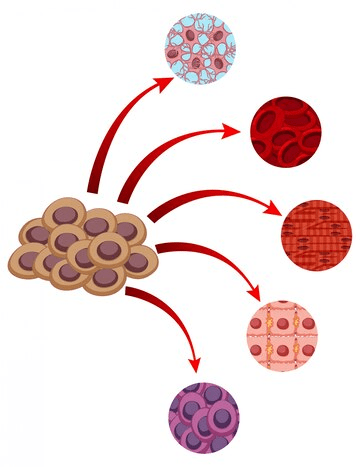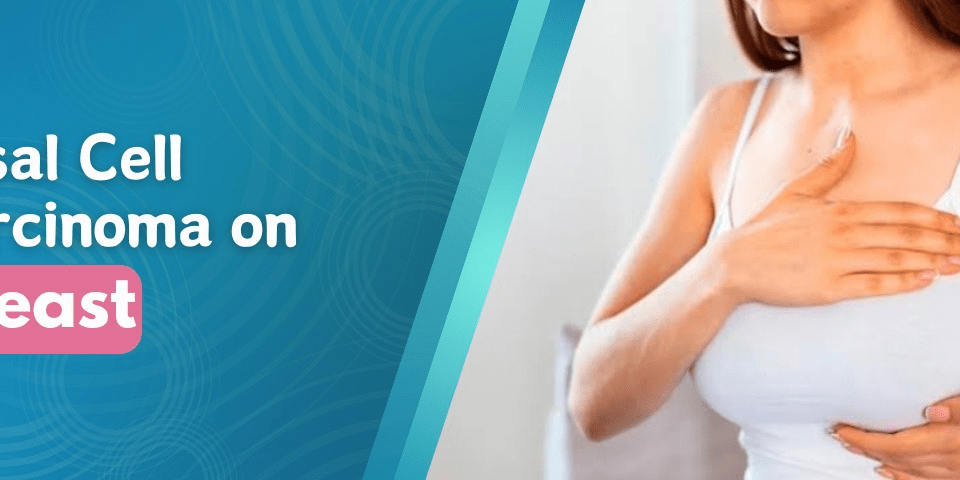Basal Cell Carcinoma on the breast is a rare type of skin cancer that grows slowly and usually doesn’t spread to other parts of the body. It’s important to understand this cancer for early detection and treatment.
Dr. Garvit Chitkara is a top breast cancer surgeon in Mumbai who specializes in treating breast cancer. Choosing the right surgeon is crucial for a smooth recovery. Dr. Chitkara is experienced and can help you understand your options and provide effective treatment.
Detecting a basal cell carcinoma on your breast? Take control of your health and future. Reach out to us now!
Understanding basal cell carcinoma
Basal Cell Carcinoma (BCC) is the most common kind of skin cancer. It starts in the bottom layer of the skin, which is called the basal cell layer. This cancer is usually a small, see-through bump on the skin. But, it can look different sometimes. It’s mostly found on sun-exposed skin, like the face and neck. But, it can happen anywhere on the body, including the breast.
BCC grows slowly and is usually not too serious if you catch it early. It doesn’t often spread to other parts of the body. But if it’s not treated, it can grow bigger and cause more problems, like damaging the skin more deeply.

Empower yourself with knowledge about basal cell carcinoma. Seize control of your health and future—connect with us today!
Link between breast cancer and basal cell carcinoma
According to Dr. Garvit, breast cancer and basal cell carcinoma (BCC) are two different things but can both show up around the breast.
Here’s an easy way to understand them:
According to Dr. Garvit, breast cancer and basal cell carcinoma (BCC) are two different things but can both show up around the breast.
Here’s an easy way to understand them:

Finding and Getting Help: Doing checks at home for any breast or skin changes and then seeing a doctor if something seems off can catch problems early. Early treatment is usually more successful.
Always go to the doctor if you notice anything unusual on your breast or skin to get checked out and find the best treatment.
Uncover the link between breast cancer and basal cell carcinoma. Seize control of your health and future—reach out to us today!
It’s normal to worry about the link between breast cancer and basal cell carcinoma. But, getting guidance from healthcare pros can bring clarity and peace of mind.
Is it normal or concerning?
Most Changes Aren’t Serious: Most of the time, changing – which can even be non-cancerous- is natural, but it is better to be sure of it by seeing a doctor.

Complications from basal cell carcinoma on the breast can occur if not treated early, potentially leading to more skin damage or spread to nearby tissues.
Whether it’s normal or concerning, prioritize your health and well-being. Take charge today—contact us for peace of mind and guidance!
Complications
Treatments Options
Basal Cell Carcinoma:
Breast Changes (Potential Breast Cancer):
The best treatment plan depends on individual factors like the type and stage of cancer, overall health, and personal preferences. It’s important to discuss all available options with healthcare providers to choose the most appropriate treatment.
Consult a doctor promptly if you notice any unusual changes or growths on your breast skin, as early detection and treatment of basal cell carcinoma are crucial for better outcomes.
When to consult the doctor?
For Basal Cell Carcinoma (BCC):

Early consultation can lead to early detection and treatment, improving outcomes.
Conclusion
Dr. Garvit Chitkara stresses finding problems early. This is especially important for conditions like skin or breast cancer. It greatly improves treatment outcomes. Taking proactive steps for your health. Getting medical help promptly when you see changes can greatly improve your well-being.
FAQs
Should I worry if I have basal cell carcinoma?
It’s important to address basal cell carcinoma promptly with a doctor, but excessive worrying isn’t necessary.
Can you live a full life with basal cell carcinoma?
Yes, with proper treatment and monitoring, many people can live full lives even with basal cell carcinoma.
What is the cure rate for BCC?
The cure rate for basal cell carcinoma (BCC) is generally high, especially with early detection and treatment, offering good chances of recovery.

